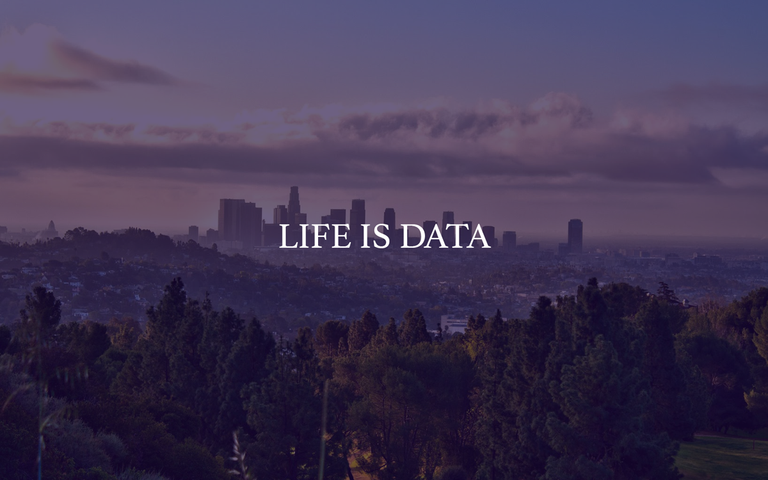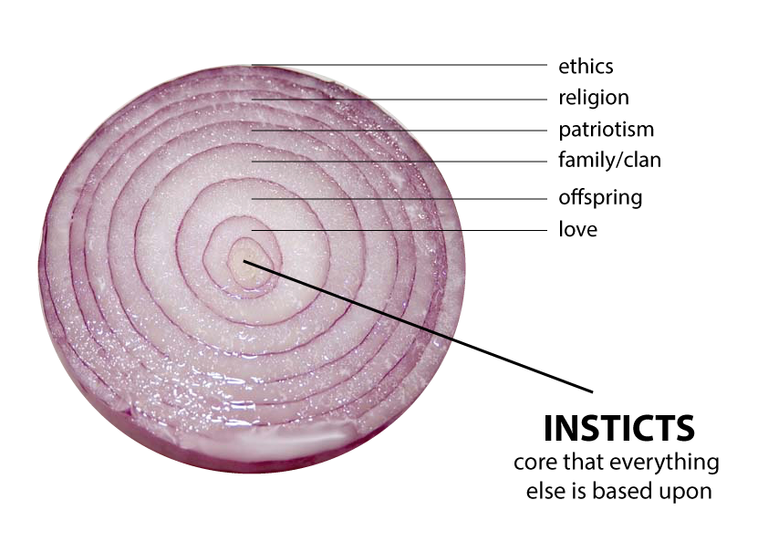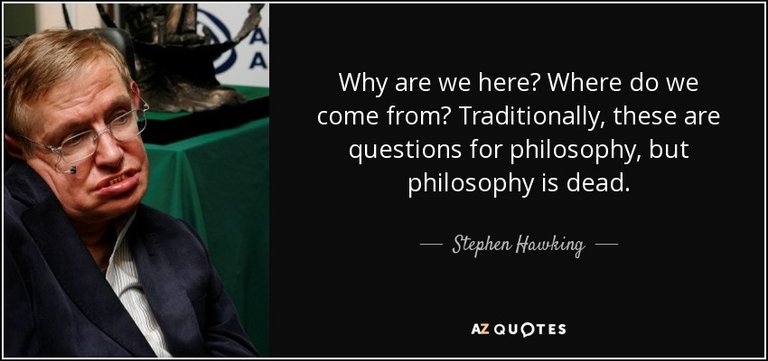
All too often comes the subject of meaning of life. As human beings that can envision our own death, we often make the mistake to assume that life has some kind of meaning and thus we continue by speculating the parameters upon which our values emerge. Thing is, life has no other meaning other than preserving random data with specific fitnessattached to them. In biology we call those data survival instincts. Instincts that have proven to be helpful for a species survival are passed down the genetic line. Based on a given environment and over extended periods of time, some instincts prevail upon others and life continues to go on.
The meaning that we chose to give as human beings mainly stems from tradition or rather from data that has been passed on to us that is also camouflaged in other form of data. Think of the human meaning in life like an onion where in the outer layers there is religion, family, ethics and so on and in the middle there is a core instinct that binds the whole thing together. This is how everything becomes central in our existence. Survival instincts exist whether or not we chose to acknowledge them and they are indifferent to human values and constructs.

It is important to understand that everything in life is about data. I would go as far as to say that if there is such thing as meaning in life, the is nothing other than preserving data. Data themselves get to be maintained through survival instincts — or better put — behaviors that help a species survive. The issue about the meaning of life emerges mainly when people try to find something meaningful to hold on to, something to hang on, a set of data that justified their existence. It is part of the human existential angst that emerged as soon as we developed brains that could understand that someday we will cease to be. It is also the main reason philosophy is still a thing.
Religions construct their own ethics and practises, camouflaging the point of preservation through rituals than ensure the belief in something greater. Some philosophers like to create narratives and constructs that bend the meaning of words in order to satisfy their point of view — that is — that the meaning of life is something more than soulless biology. They both come short on the same premises because after we strip down what humans believe to be true, we end up with raw data. Our core beliefs, our values, our sense of ethics, everything is just random data that struggles to maintain itself against another set of data. At the core there are only survival instincts, data that program all the layers of the onion towards one mission: More data. Given enough more diversified data, we get more and more species. Life goes on by building antifragility.
Therefore, a survival instinct is nothing more but a generic behaviour that is coded in DNA, a set of core data. It is constantly changing as the species evolves in order to accommodate itself. DNA cannot know which species it belongs to because it is only data after all with a specific function. It's process involves transferring traits to the next generation. Part of how this is happening is through epigenetic processes. In other words a species' DNA is not fixed and neither are the instincts that come along with it. In biology a survival instinct is called formally Fixed Action Pattern and it has be studied in great detail across all species.
In the same way we can't study the generic meaning of water. The assumption in nonsensical. Instead, we can study water that belongs to lake A, in country B, during the months of X in respect to substances Y. In the same respect, we cannot study the concept of an instinct. For that we need to specify the species, the environment and the hypothesis of our study. Zoologists do this all the time. Many couch philosophers fail to understand this because they lack knowledge about biology and the scientific method upon which survival instincts are narrowed and studied. This is also part of the reason why Stephen Hawking said "philosophy is dead". Too much talk, very little application.

If I took a picture before a day Mary turned 10 years old, she wouldn't appear different the day after. The difference would minimal to the naked eye. The division of when Mary is 9 and when she is 10 is a social construct that serves specific contexts of communication. It cannot be a factual representation of reality. This is also how instincts across species work. Life on our planet has existed for billions of years. When we observe the instincts of a species today we observe a snapshot of something that has long existed. We chose to separate the instincts for that specific species for practical reasons — e.g. for studying.
This is how the survival instinct of needing oxygen is much the same and carried out for almost all species even if we have so many variations across species. Other instincts, such as the one of breeding get more diverse depending of each species and the environment it is found. For example, in our species the survival instincts of procreation evolved through such mechanisms as the one of love, lust, even book writing. Nature is indifferent to how the instinct express itself as long as the carrier can pass the information down the genetic line.
Just because an instinct serves one member of a species and not another it does not mean the instinct does not exist. It merely means that the instinct sometimes rewards the organism and sometimes it doesn't. Which brings us to the next point. Nature developed species in groups to ensure propagation in case instincts do not work for some members, not because they don't exist.
An instinct is a behaviour that characterizes generically a species under a specific environment, not a fixed tangible thing like a stone. The oversimplification is rather silly. Group behavior of species is studied, well, in groups and not by taking each organism's case into a philosophical rampage.
This form of individual analysis in respect to the non-existence of instincts is rather an attempt to anthropomorphize each member of a species as something unique that has values, so thereafter the individual can make a case that each person has objective values.
There is no other meaning for Life other than preservation of data. Preservation of data occurs through the multifaceted mechanisms of instincts. A philosopher might choose not pass some data through DNA but he will do it through books and articles. Even if the philosopher suicides he would still have left a trail of data behind him.
DNA is just a form of data transference as much as it is language or computer code. This is how every single species on earth shares some aspects of the DNA as the first fish that swam the oceans. Some survival instincts are strong, some weaker. If you would like a living proof of falsifying this hypothesis then look no further than antibiotics. Humans have developed specific substances that go against the survival instincts of the organisms we want to keep away from us. For some this has worked, and hence why the humans species lives on. In some cases this doesn't work and resulted into making superbugs, aka antibiotic resistant organisms that can kill a human. Their instincts evolved beyond our own expectation.

Ayn Rand said once "You can avoid reality, but you cannot avoid the consequences of avoiding reality." The reality is that if we strip down everything we know about life and its meaning it comes down to data and the instinctual mechanisms that these data develop in order to preserve themselves. The variation in species ensures that life goes on no matter what. The ever-changing instincts are nothing but tools that enable this preservation and continuation of those data. Our religions, schools of thought, families, beliefs, values, accomplishments are nothing but elaborate constructs around the point of preserving data that ensure survival of themselves.

wow what an awesome post from you @kyriacos upped...full of knowledge and yes I agree instincts are core that everything are based on. Hope our instincts always lead us well. Do not forget to see my post on Dtube ability to kill Youtube when you are free...wish you success
It's an interesting way to look at things. I really like it.
I'm in the process of having my entire DNA fully mapped. I'm sure instincts they'll find, but I expect a number of other interesting finds.
Great post!
They won't find any instincts in your DNA mapping but they will identify genes that might affect some Fixed Action Patterns. — aka instincts.
Thanks. It's going to be very interesting. I get the final results in December.
The word "data" in your posting threw me off a bit, as I have a formal definition of that in my head. I like "Action Patterns" better, or data and procedures that operate on data. Or even information in stead of data. Consider this I must. Engineer's burden, I suppose 8-).
Many of these Action Patterns we learn by generalising observations; it would be impractical to rethink every time if a brick falls up or down. They are not all built-in at birth, I mean.
I thought this was communicated fairly well.
aka instincts
loops if you like
I like the Onion example, smart and simple, nice post @kyriacos.
wow what an amazing post from you @kyriacos upped...full of learning and yes I concur senses are center that everything depend on. Expectation our impulses dependably lead us well. Bear in mind to see my post on Dtube capacity to murder Youtube when you are free...wish you achievement Enjoyable read. Seem like the computerized Darwinism Matrix. LOL. A certain something, where does soul sits in the onion?
Life is a tipical data
Muy interesante tu post, muy ilustrativo..."La vida es datos"
Interesting read, thanks for your view on this topic.
our lives are the stories we tell ourselves
“Our lives are not our own. We are bound to others, past and present, and by each crime and every kindness, we birth our future.”
― David Mitchell, Cloud Atlas
So every individual action taken is thereby not our own? Or mediated from millions of interactions shared from birth, that cannot be measured?
I don't think that's what @kyriacos implied, perhaps more that we can't claim sole authorship, to do so would ignore the influence of every external factor and actor that we cannot exist without, be it starting conditions, inspiration, intervention, culture, etc et al.
These reflections parallel Kundera vs Nietzsche fairly well; is all pre-ordained or unique, is there any free will? Unlike the arguments, I don't think the answer is so polar. I don't think there is an answer, at least not in the context of the question as most ask it.
Believe what you will, do no harm, ease suffering if you're able, make life interesting if only for your own distraction. Or don't.
It's all stardust in the end, until the heat death of the universe. But that's a way off yet, and long after the failing of all human endeavors, after all the stars have gone dark, and entropy has won over information.
Or will it?
Do we even know the full extent of the verse? If it has a beginning and end what is beyond those bounds, how long/far does the end extend?
I realize the position that every individual has a number of influences upon their actions and thoughts, perhaps we can't claim sole authorship, yet it will be claimed anyway.
Do we claim authorship of the cartoon that a child used to watch, upon penning a book deal detailing how the individual became successful, if the cartoon instilled goals that the individual achieved? There is a problem with authorship vs ownership here also and how they differ.
I think a compatibilist view is most close to the truth, it all depends on how you define free will and what degree you accept your every action is determined.
It isn't possible to ever know the full extent or infinity (or greater than infinity if not only measuring numbers).
Really interesting post about life... You have discussed minutely from biological approach... "DNA" ,Gene" the hereditary material how plays to transfer character from parents to offspring really all are very interesting subject... Thanks for sharing all of these.. distinctly with good examples...
I have to admit and confess that this is the best post av seen today
I love to read each and every post of yours,
@kyriacos, very informative topic you shared from which I gain fruitful knowledge. Thanx buddy.
thanks for the information. what your news is useful for us all ..
Spamming comments is frowned upon by the community.
Continued comment spamming may result in action from the cheetah bot.
very interesting your post good continuation
good post i love it
Enjoyable read. Sound like the digital Darwinism Matrix. LOL. One thing, where does conscience sits in the onion?
Complicated and simple at the same time. Nice job.
Great post. I find it funny that the etymology of the word philosophy is love of knowledge.. Or a love for data? I think all 'energy' is synonymous with information or data. As simple at it seems, their still is no threat of fully understanding life or data. Which has led me to think before, maybe the meaning of life is to live.. Without some philosophies we might not have many theories that do get applied as technology advances. Like how Einstein's general theory of relativity influenced the existence of gps. Maybe inadequate philosophy (or knowledge) inhibits action and vice versa- which would go back to what you said about instincts gathering data to preserve themselves. Just some thoughts. Great post.
Survival is no joke I live here in South Florida just got hit by Hurricane Irma and I was out of Electricity for a week in 90*degree heat. That shit was no joke. thanks for the post Ill follow ya.
Great post and very informative. @kyriacos Have learnt a lot from it.
I respectfully disagree.
I felt more alive after letting go of my life. It wasn't until I stopped being afraid that I truly began to live. Before that I was controlled by all manner of mechanisms (family, friends, society). If I don't play by their rules they will withdraw support, that is the fear. But this isn't entirely true, because what people truly value is love. If you love the world and the people in it, they love you back.
This is an on going process, but meditation has provided me with a glimpse of what I now consider reality. A peace and tranquility live within me. And a side benefit to meditation was loud noises no longer made me jump. I would hear them, assess what it was.. but not jump.
I believed in our limitless potential and began to exercise it. I played with a cat and got faster than it.
I realize now, this should be my blog post. I have so much to say.
I would like to mention, in relation to your post, that after meditating for a while I had a surprising benefit... loud noises no longer made me jump. I would hear them, assess what it was.. but not jump. These seem to me to be in direct opposition to the idea that surviving by instinct is the best method. Clearly being able to think is the benefit of being a man, and to live by instincts alone returns you to the realm of reptiles.
So I do not feel that survival instincts and preservation of data are the meaning of life.
I think we should be searching for 'the loving of life'
Blessing to you, may peace shine thru you.
Namaste
Fully agree with your observation, sir. Perhaps life should not be viewed from prevailing technology. What was life during the time of the caveman when data was not even there, as we know it today. What would life be in a thousand years from now when data might not have relevance or importance that it has today. Moreover, technology is a throw up from life and not the other way around?
i think discernment is important. not all data is created equal.
i think that is something steem is helping with.
@kyriacos. Is this materialistic analysis of this thing we call life sufficient though?
This statement about life is relevant today in this age or era of information. Wonder what was life when data as we know it was not extant? Perhaps during the days of the caveman? And much more interesting, what would life be a thousand years from now? If man was still around, of course. So what is life?
Thank you for sharing biology